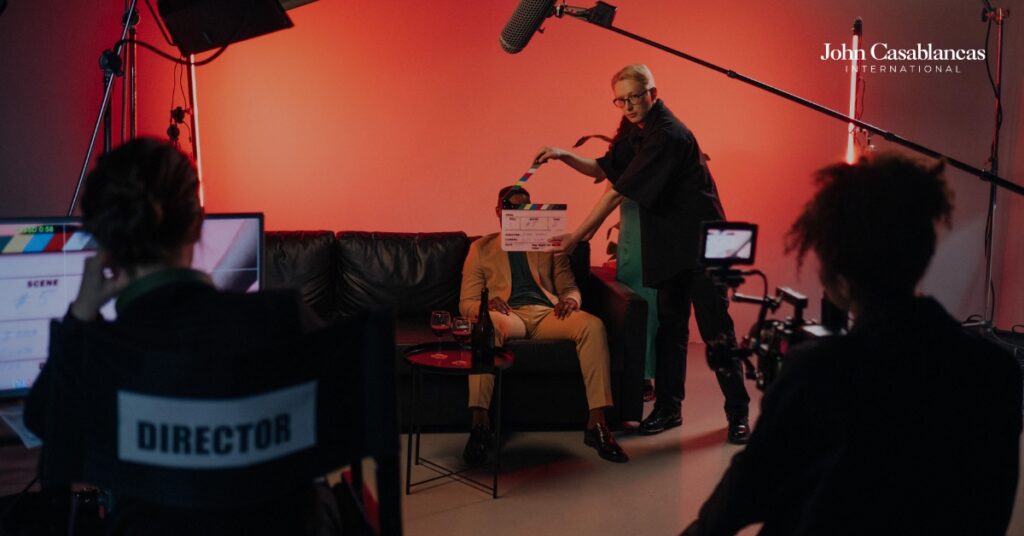
The audition room is often perceived as a crucible of pressure, but for the comedic actor, it’s an opportunity to transform tension into genuine laughter. Making a casting director laugh isn’t about being a stand-up comedian; it’s about demonstrating a profound understanding of character, comedic timing, and the specific mechanics of humor within a performance context.
Choosing Your Comedic Gold
Your monologue is your crucial tool; pick it wisely. Don’t just grab something with funny lines. Instead, find a well-structured piece that highlights your unique comedic style—be it dry wit, physical comedy, or relatable character humor. Ensure the material aligns with your age and typical casting type.
Crucially, your character needs a clear objective and an obstacle, as this inherent tension fuels the humor. A strong monologue also has a beginning, middle, and end, building effectively. Avoid offensive or outdated humor, and try to find fresh material; if you use a popular piece, make your interpretation genuinely unique. Remember to stick to 1-2 minutes—brevity makes an impact!
Unpacking the Humor
Once you’ve chosen your monologue, your next step is not just to memorize lines but to dissect the very DNA of its comedy. Every comedic scene has a “game”—the underlying comedic mechanism at play. Is the humor derived from a character’s profound ignorance, their unwavering delusion, a relentless misinterpretation, an escalating absurdity, or sharp irony? Understanding this core game allows you to play it truthfully and consistently.
The humor doesn’t just lie in the words; it’s in who is saying them and why. What are your character’s unique flaws, insecurities, misguided beliefs, or unique way of seeing the world? The comedy often stems from their particular, often skewed, perspective within a given situation. Their logic, however flawed, must be entirely sound to them.
Comedy is inherently musical. Pay meticulous attention to the rhythm of the lines. Where are the natural pauses? How does the tempo shift? Where are the set-ups and punchlines? These aren’t just technical elements; they’re integral to how the humor lands. A beat held too long, or cut too short, can kill a laugh.
Your primary objective is not to make them laugh, but to play the character and their circumstances with absolute truth and commitment. The laughter should be a byproduct of your authentic engagement with the material. If you play the “joke,” it almost invariably dies. Play the reality, no matter how absurd.
Precision in Delivery
Bring your monologue to life with precision. Vague acting kills comedy; every physical choice, facial expression, and vocal inflection must be deliberate and specific. Often, the funniest moments come from playing against the joke, reacting with seriousness to absurd situations. Don’t wink at the audience or try to force a laugh.
Master the comedic pause—it builds anticipation and lets jokes land. If appropriate, integrate physicality thoughtfully so it enhances, rather than distracts from, the verbal humor. Use your voice to its full potential, varying pitch, pace, and volume for impact. Always maintain a clear sense of who you’re speaking to and your character’s intention. Finally, approach your performance with confidence and ownership; your belief in the material is contagious.
The Audition Room
Your behavior before and after your performance also contributes to the impression you make. Know your monologue cold, but leave room for spontaneity and living in the moment. Don’t rely on holding the script.
Greet the casting directors politely. Briefly and clearly state the title of the piece and the playwright. Take a moment to breathe and center yourself before you begin. If you stumble or forget a line, keep going. Do not apologize, explain, or draw attention to the mistake. Most casting directors will respect your ability to recover and stay in character.
If asked to make an adjustment or try the monologue differently, embrace the opportunity. This shows your versatility, collaborative spirit, and ability to take direction—qualities highly valued in the industry. Conclude your monologue clearly and confidently. Take a moment to return to yourself and thank the casting directors for their time.
Elevate Your Craft with John Casablancas International
Mastering the comedic audition monologue is an art form that demands skill and strategic choices. Embrace the journey of refining your craft, recognizing that every laugh earned is a testament to your talent and preparation.
For aspiring actors seeking comprehensive training and expert guidance to truly stand out, John Casablancas International offers unparalleled resources to hone your comedic timing and performance skills, helping you turn auditions into successful opportunities.